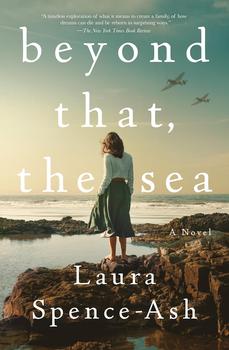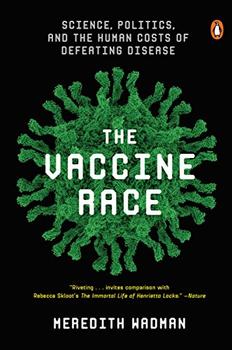Summary | Excerpt | Reading Guide | Reviews | Beyond the book | Read-Alikes | Genres & Themes | Author Bio

Flora is a novel as word-perfect and taut as an Alice Munro short story; like Munro, Godwin has flawlessly depicted the kind of fatalistic situation we can encounter in our youth — one that utterly robs us of our childhood and steers the course for our adult lives.
Ten-year-old Helen and her summer guardian, Flora, are isolated together in Helen's decaying family house while her father is doing secret war work in Oak Ridge during the final months of World War II. At three Helen lost her mother and the beloved grandmother who raised her has just died.A fiercely imaginative child, Helen is desperate to keep her house intact with all its ghosts and stories. Flora, her late mother's twenty-two-year old first cousin, who cries at the drop of a hat, is ardently determined to do her best for Helen. Their relationship and its fallout, played against a backdrop of a lost America will haunt Helen for the rest of her life.
This darkly beautiful novel about a child and a caretaker in isolation evokes shades of The Turn of the Screw and also harks back to Godwin's memorable novel of growing up, The Finishing School. With its house on top of a mountain and a child who may be a bomb that will one day go off, Flora tells a story of love, regret, and the things we can't undo.It will stay with readers long after the last page is turned.
A layering of perspective is one of the most interesting aspects of Flora. On the book jacket, novelist John Irving aptly likens Godwin's achievement to the pared-down psychological stories of Alice Munro. There are shades of the familiar in Flora, themes a reader is likely to have seen before – say, in Ian McEwan's Atonement. Familiarity isn't necessarily a bad thing, and Flora makes for a pleasurable, comfortable read...continued
Full Review
(639 words)
This review is available to non-members for a limited time. For full access,
become a member today.
(Reviewed by Jennifer G Wilder).
 In the fictional North Carolina mountain town at the heart of Gail Godwin's Flora, a 1945 polio scare takes the life of one child and paralyzes another while the community scrambles to contain the disease. These tragedies, which form part of the cultural fabric of Godwin's fictional world, echo real events that took place in rural North Carolina in the 1940s, when the polio epidemic was peaking there. In 1944, the mountain town of Hickory, NC, experienced a devastating polio outbreak. When local facilities were not adequate to house the stricken, most of whom were children, residents mobilized. They repurposed a rustic health camp that had been built the year before for children recovering from tuberculosis, and built a new hospital on ...
In the fictional North Carolina mountain town at the heart of Gail Godwin's Flora, a 1945 polio scare takes the life of one child and paralyzes another while the community scrambles to contain the disease. These tragedies, which form part of the cultural fabric of Godwin's fictional world, echo real events that took place in rural North Carolina in the 1940s, when the polio epidemic was peaking there. In 1944, the mountain town of Hickory, NC, experienced a devastating polio outbreak. When local facilities were not adequate to house the stricken, most of whom were children, residents mobilized. They repurposed a rustic health camp that had been built the year before for children recovering from tuberculosis, and built a new hospital on ...
This "beyond the book" feature is available to non-members for a limited time. Join today for full access.

If you liked Flora, try these:

by Laura Spence-Ash
Published 2024
A sweeping, tenderhearted love story, Beyond That, the Sea by Laura Spence-Ash tells the story of two families living through World War II on opposite sides of the Atlantic Ocean, and the shy, irresistible young woman who will call them both her own.

by Meredith Wadman
Published 2018
The epic and controversial story of a major breakthrough in cell biology that led to the conquest of rubella and other devastating diseases.
Dictators ride to and fro on tigers from which they dare not dismount. And the tigers are getting hungry.
Click Here to find out who said this, as well as discovering other famous literary quotes!